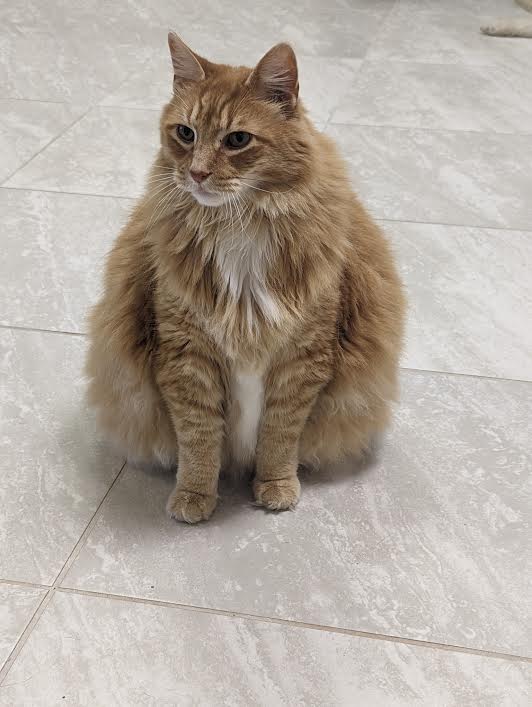|
Happy 2024! New Year’s resolutions are fresh on our minds, and on many lists there may be a goal to lose weight and exercise more. Our feline friends can also suffer from weight gain, and carrying only a few extra pounds can really affect them. Since cats are dependent on us for their food and activity levels, we become responsible for maintaining their healthy weight.
A note: preventing weight gain in your cat is easier than working to take off the weight. Maintaining a balanced, healthy diet, portion control, and exercise is all easier said than done, but being aware of your cat’s health, and the factors involved in their weight should be top of mind. Is Your Cat Gaining Weight? My sweet Daphne is an indoor/outdoor lady, and come winter time, if it is below 50 degrees, she stays inside all warm and cozy. Unfortunately, here in Syracuse, winter can last months, meaning she may not be out prowling from November until March. Her “winter layer” really starts to show after six weeks of sitting indoors, and her stomach and hips go from concave to bulging. I can also tell she is gaining weight because her belly starts to droop lower below her. Once temperatures start to rise, and she is ready to head back out, within weeks her weight starts to drop and she is back to her usual size. Looking down at your cat from above is an easy way to tell if their hips and stomach have expanded and rounded. Or, you can simply put them on a scale. How Much is Too Much? We also have to consider that Daphne, like many cats, is a big cat: she is tall and long, so any extra weight is evenly distributed, and she is still healthy. Knowing your cat’s body type is a key part of managing realistic expectations, and knowing if weight loss or weight gain is necessary, achievable and sustainable. Why is Weight Gain a Big Deal? Excess weight gain in cats significantly impacts their health and life expectancy. As with humans, extra weight can contribute to serious health conditions such as diabetes, heart disease, arthritis, and bowel and urinary complications. Grooming can also really be affected also when your cat is too large to bend and reach, which can contribute to a number of coat issues like excessive dander and mats. Grooming is essential to the well being of a cat, and not being able to do so can impact their physical and mental health. My Cat is Overweight; What Do I Do? Talk to your veterinarian and come up with a weight-loss plan. Your vet can discuss any health risks you and your cat should be worried about. It’s important to remember that rapid weight loss can be very detrimental to the health of your cat, so slow and steady is the best approach to getting their health back, using a combination of diet and exercise. Suggestions to add to your daily routine to help get your feline lean and healthy can include:
Eating right and staying active is a process, but is a lifestyle that should include your animals as well. You want your fur babies around as long as possible, and fewer health issues and vet visits equal a happier you and a happier cat. Let’s do our best to keep these health-conscious New Year’s resolutions! (Today’s photo features our big, fluffy friend Mr. Bing!)
0 Comments
Leave a Reply. |
AuthorWhen Cari has some free time from all the kitties, she likes to share her knowledge of all things cat in this bi-monthly blog. Enjoy the read! Archives
June 2024
Categories |


 RSS Feed
RSS Feed